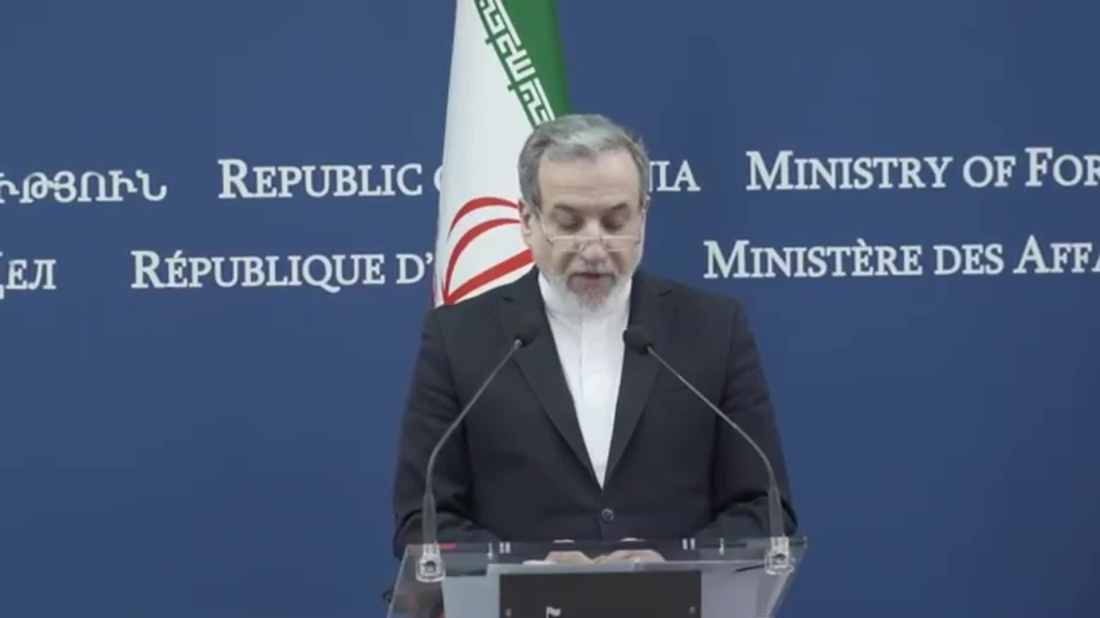Ukraine detains former energy minister in major anti-corruption case
Former Ukrainian energy minister German Galushchenko has been detained while attempting to leave the country, anti-corruption authorities said on Sund...

Russia, Iran, and China have held consultations in Moscow to discuss possible scenarios following the expiration of the Joint Comprehensive Plan of Action on Iran's nuclear programme which was endorsed by the U.N. Security Council Resolution 2231. Plan's term expires in October 2025.
"Various options and scenarios are being considered regarding the situation after the current Security Council resolution expires on October 18 of this year," Russian Deputy Foreign Minister Andrey Rudenko told the media.
He added that the sides were monitoring what was going on with the nuclear deal in light of the U.S.'s ongoing efforts to solve the issue.
Consultations between the three countries at the expert level was held in Moscow on April 8.
Russia's Permanent Representative of Russia to International Organizations in Vienna Mikhail Ulyanov said that "trilateral coordination seems to be very useful and valuable."
"Today China, Iran and Russia had a productive expert-level meeting in Moscow on issues related to the Iranian nuclear programme, including prospects and challenges in this sphere," he posted on X on Tuesday.
Iran's Deputy Foreign Minister for Legal and International Affairs Kazem Gharibabadi also described the last meeting as "productive and constructive."
Meanwhile, representatives of Tehran and Washington will have a meeting in Oman on Saturday. The State Department confirmed that Steve Witkoff, the US special envoy to the Middle East, will be taking part.
On Tuesday, Iranian Foreign Minister Abbas Araghchi said that the talks would be indirect and stated that Tehran is "ready to engage in earnest" to reach a deal. He acknowledged the presence of "a significant wall of mistrust" between Tehran and Washington.
"Pursuing indirect negotiations is not a tactic or reflection of ideology but a strategic choice rooted in experience," said Araghchi. "We face a significant wall of mistrust and harbour serious doubts about the sincerity of intentions, made worse by US insistence on resuming the 'maximum pressure' policy prior to any diplomatic interaction."
In an opinion piece published in The Washington Post, Araghchi emphasized that there was no evidence that Iran had violated its commitments under the Joint Comprehensive Plan of Action (JCPA), signed in 2015 by Iran with five permanent members of the UN Security Council - the United Kingdom, China, France, Russia, and the United States, plus Germany and the European Union.
"President Trump might not like the Joint Comprehensive Plan of Action ... but it contains one vital commitment: that 'Iran reaffirms that under no circumstances will Iran ever seek, develop or acquire any nuclear weapons," - Foreign Minister wrote. "Ten years after the JCPOA was concluded – and nearly seven years after the United States unilaterally walked away from it – there is no evidence that Iran has violated this commitment."
Araghchi highlighted recent congressional testimony by intelligence chief Tulsi Gabbard, who said: "The intelligence community continues to assess that Iran is not building a nuclear weapon and supreme leader [Ayatollah Ali] Khamenei has not authorised the nuclear weapons programme he suspended in 2003."
He said that to proceed with talks, it was important to take a military response off the table. Mr Trump has said in recent weeks that "there will be bombing" and that "bad, bad things are going to happen to Iran" if it fails to reach a nuclear deal with the US.
Iranian FM added that "diplomatic engagement worked in the past and can still work."
U.S. Ambassador to NATO Matthew Whitaker said China has the power to bring an end to Russia’s war in Ukraine, arguing that Beijing is enabling Moscow’s military campaign.
New Zealand declared a state of emergency in Otorohanga on Saturday (14 February) after torrential rain caused severe flooding, power outages and evacuations.
Austria’s Janine Flock won the gold medal in the women’s skeleton event at the Milano-Cortina 2026 Winter Olympics on Saturday.
“Real security guarantees are needed before the war ends,” Ukrainian President Volodymyr Zelenskyy said at the Munich Security Conference on Saturday (14 February), warning that Russian aggression shows no sign of relenting.
U.S. Secretary of State Marco Rubio on Sunday (15 February) called it “troubling” a report by five European allies blaming Russia for killing late Kremlin critic Alexei Navalny using a toxin from poison dart frogs.
Former Ukrainian energy minister German Galushchenko has been detained while attempting to leave the country, anti-corruption authorities said on Sunday.
Britain and Germany’s highest ranking military chiefs have made an unprecedented joint appeal to the public to accept the “moral” case for rearmament and prepare for the threat of war with Russia.
Medals were awarded in eight disciplines on Sunday as the 2026 Milano-Cortina Winter Olympics continued in Italy.
Hungarian opposition leader Peter Magyar delivered a state of the nation speech in Budapest on Sunday, saying the parliamentary elections in April were an opportunity for his country to take a new direction.
United States prepares for the possibility of sustained, weeks-long military operations against Iran, two U.S. officials told Reuters as the images of the USS Abraham Lincoln carrier strike group sailing and flying in formation were released on Sunday.
You can download the AnewZ application from Play Store and the App Store.

What is your opinion on this topic?
Leave the first comment